


|
1200 |
In Peru, the Incas begin to dominate the Cuzco Valley, and this area becomes the centre of a thriving and expanding empire which lasts into the 15th century.
|
|
1202 |
The Fourth Crusade starts out for the Holy Land and, becoming embroiled in western politics, ends up attacking Constantinople, the capital of the Christian Byzantine Empire!
|
|
1203 |
The Kingdom of Ghana, a major centre of power in West Africa for four hundred years, is attacked and overthrown by Sumanguru, king of the neighbouring Susu tribe.
|
|
1205 |
The English poet Layamon writes a chronicle on the history of Britain, a romance poem of some 16,000 lines which includes the first English version of the Arthurian legend.
|
|
1206
1209 |
The Albigensian Crusade is launched led by the French baron Simon de Montfort. Its target is not the Muslims, but an heretical sect of Christians living in southern France, in and around the city of Toulouse.
|
|
|
King John is excommunicated by Pope Innocent III after refusing to recognise Stephen Langton as Archbishop of Canterbury. He relents in 1213 and Langton takes office.
Francis of Assisi, taking on a life of poverty and Christian service, founds the Order of Friars known as the Franciscans or Grey Friars. He was made a saint soon after his death.
|
|
1210 |
The German poet Gottfried Von Strassburg writes his famous poem Tristan and Isolde, a love story which was to inspire many, including the German composer Richard Wagner.
|
|
1212 |
Led by a French shepherd boy and a German lad of 10 years, thousands of children set off for the Holy Land. The Children's Crusade, as it came to be known, ends in total disaster.
Alfonso VIII, King of Castile, wins a resounding victory over the Almohads at the Battle of Las Navas de Tolosa. This marks the beginning of the end for Muslim power in Spain.
|
|
1214 |
The army of Otto IV, including an English contingent, is defeated by Philip II of France at the Battle of Bouvines. King John fails to regain his lost territories in France.
|
|
1215
1216 |
John is taken ill and dies at Newark. His son succeeds to the English throne as Henry III.
|
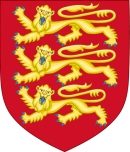





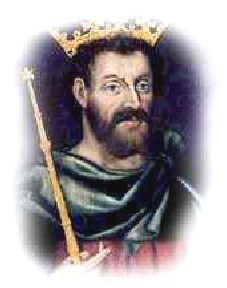
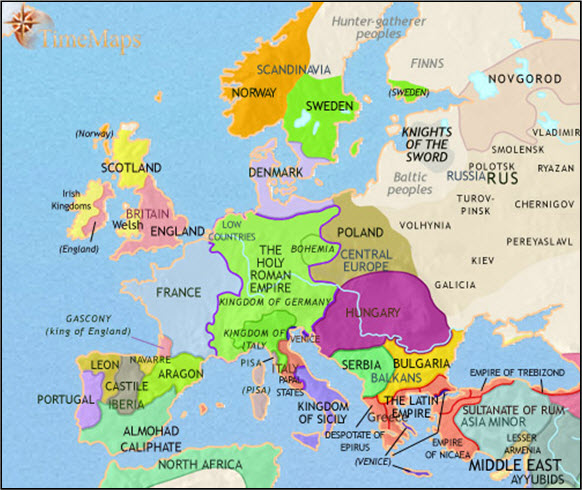
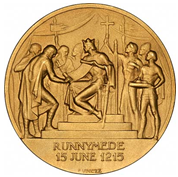 xxxxx
xxxxx The
walled city of Mayapan in the Yukatan Peninsula of Central
America takes over from Chichen Itza as the major centre of the
area, and leads to a revival of
The
walled city of Mayapan in the Yukatan Peninsula of Central
America takes over from Chichen Itza as the major centre of the
area, and leads to a revival of 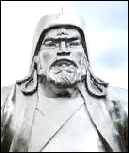 The
Mongol conqueror Temujin, having united all of Mongolia under
his leadership, assumes the title of
The
Mongol conqueror Temujin, having united all of Mongolia under
his leadership, assumes the title of 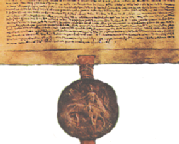 English
barons force John to sign the
English
barons force John to sign the 